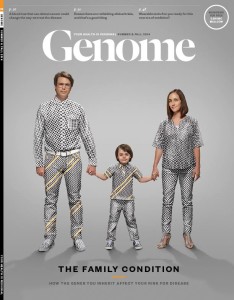Unlike most Americans, Karla Hornstein knows her vulnerability to the brain-robbing disease called Alzheimer’s, specifically a rare and early-onset form that runs in families and has haunted her own.
Her father developed symptoms in his early 40s, decades before genetic testing was available. “We all went on with our lives and had our children and probably didn’t think about it too much,” says Hornstein, a 56-year-old office manager in Fargo, North Dakota, and the mother of two grown children. Then several of her siblings began to suffer memory gaps, difficulties with multitasking, and other symptoms, all beginning in their 40s, first two of her brothers, followed by a sister.
By then, researchers had identified three genetic mutations that can be inherited and, if they are, cause a form of Alzheimer’s called early onset because it strikes before age 65 and sometimes far earlier. Since 2004, Hornstein and all five of her siblings have been tested. Hornstein is the only one who doesn’t carry PSEN1, one of the mutations.
But despite the stress and sadness of watching her siblings fade away from their essential selves, Hornstein takes pride in her extended family’s role in ongoing research that’s reaping insights that might pave the way for treatments — both for early onset and the far more common late-onset form. The research that has involved nearly 20 members of her family already has documented brain changes that can be traced back 15-plus years prior to symptoms. Now the next phase of that study, called the Dominantly Inherited Alzheimer Network Trial, will assess whether two drugs can slow the progression of the disease. One of Hornstein’s brothers will travel this year to Washington University in St. Louis to participate, and at least one of her nieces and nephews will enroll at another research site. “That’s where I put all my hope now,” she says.
Read the full article at Genome Magazine »
Genome Magazine‘s mission is to explore the world of personalized medicine and the genomic revolution that makes it possible, empowering you to make informed health decisions that will help you live better and longer.

